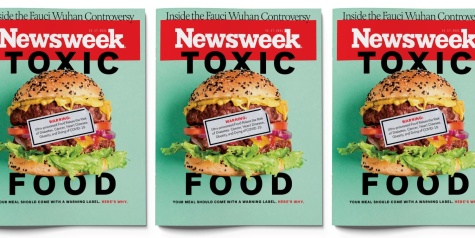
Jordyn Banks | Writer
May 16, 2024
If you pick up items in your pantry, you are likely unable to pronounce half the ingredients listed on the back. The truth is that food has gotten so out of hand to the point that it is incredibly deadly. So deadly that for future generations, lifespans are expected to be shortened by roughly ten years. This is because almost half of American adults have at least one chronic illness linked to their poor diets. Common illnesses, including strokes, heart disease, and diabetes, are directly related to diet.
Around 30 years ago, food was largely local and fresh. Now, it has become normalized for food to be “ultra-processed” and infused with additional (unnecessary) ingredients. The Standard American Diet (SAD) describes the diet patterns often followed by Americans, including meals consisting of fast foods, added sugars, packaged foods, artificial flavors, sugar-sweetened drinks, etc. Ultra-processed foods, or UPFs, were first linked to obesity by Brazilian researchers in the 1990s and have become a more widely universal issue because people are increasingly substituting good, nutrient-rich food for UPFs. For instance, UPFs account for 67% of calories eaten by kids in the United States.
But what are ultra-processed foods? UPFs are foods created through industrial methods and with unusual, unfresh ingredients. These include hydrogenated oils, concentrated proteins, and high-fructose corn syrup. UPFs also contain high oil, fat, sugar, proteins, and sodium levels. Similarly, UPFs are often infused with unique flavorings or colorings. UPFs differ from processed foods, as processed foods generally have more standard ingredients that are altered so people can make meals with them. For instance, canned foods are processed foods.
“The issue is that it is becoming more and more difficult to find healthy food. Most foods at the grocery store seem to be UPFs or extremely unhealthy,” senior Ava Martinez explains.
In a large 2024 study, researchers found that UPFs were closely associated with 32 health issues, including diabetes, heart disease, and even mental health issues like depression, anxiety, and cognitive decline. Because UPFs are addictive due to the excess ingredients, people frequently overeat them, leading to gut inflammation. Excess carbs, sugars, salts, sweeteners, and isolated nutrients can spike blood sugar and damage arteries, leading to a “leaky gut” or disruptions to the microbiome. Moreover, people who eat poorly often have low fiber. Fiber is essential for creating fatty acids when food is broken down and is vital to brain function. Those with mental disorders commonly have fewer short-chain fatty acids or a disrupted gut biome. Further, poor gut health and unhealthy diets have been linked to many psychological and physical issues. Increased inflammation is believed to influence the development of depression.

“Another issue is that UPFs are so much cheaper than healthier foods, which causes low-income families to depend on UPFs for survival,” senior Roxana Hernandez explains.
This is true. UPFs are widely accessible and convenient, enabling companies to continue selling their products despite poisoning their consumers.

Leave a Reply